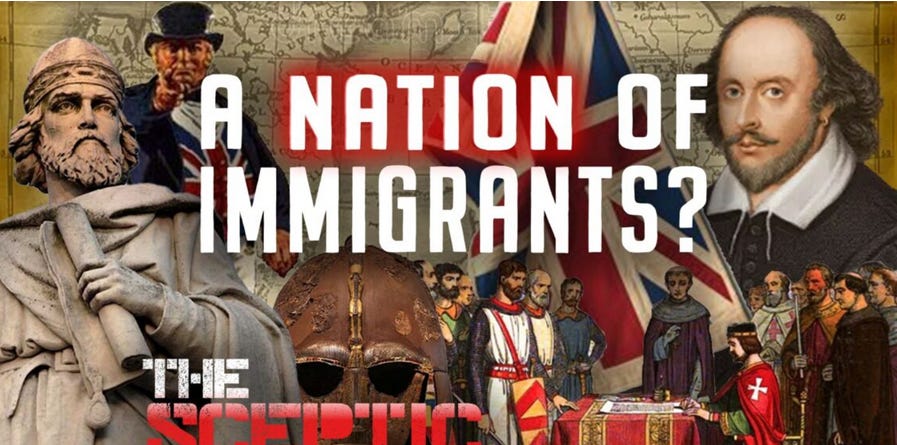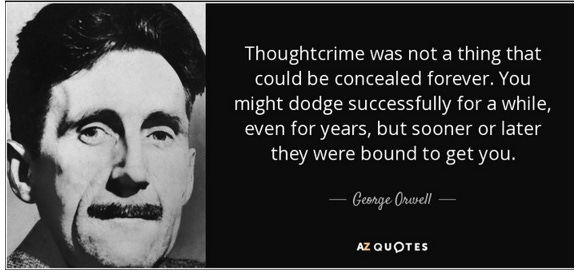The US dollar created the Satanic (Western) Global Financial System, and idols who love it. Use it prudently but do not worship the image of the beast! Put your faith in Jesus Christ

The story begins with the Nationality Act of 1948. Prior to the Act, the concept of a ‘British Citizen’ did not quite exist. Britons, like Indians, Jamaicans, or Hongkongers were subjects of the Crown to which they owed allegiance. After the Second World War, however, Britain was faced with the preordained break-up of its Empire, and changing relations with its component parts and with the Commonwealth.The
1948 Act was in part a response to this, and put those born in the British Dominions and Commonwealth on equal footing to native Britons. Although the previous shared status of ‘British Subject’ had in theory similar qualities, the Nationality Act meant that even with the new form of national citizenship, somebody from Kingston, Jamaica could live and work in Britain as freely as somebody from Kingston-upon-Thames.
Britain’s politicians and civil servants grossly underestimated the number who would use this opportunity. The Cabinet Papers in the National Archives show that what started as a trickle turned into a flood. For the five years after the Act passed, “Immigration from the colonies remained at no more than 2,000 per year.
This increased in 1954 and had reached over 135,000 by 1961. By the late 60s, there were well over a million non-whites in Britain, up from only a handful after the war. Most had alien cultures, and often religions, too. This posed a unique problem for England, where the majority of the newcomers settled. As Benjamin Schwarz showed in his superbly written essay, ‘Unmaking England’, Britain’s ethnic composition had remained almost unchanged for nearly a millennium-and-a-half, or, it might be argued, much longer than that.
Genetic records show that the matrilineal ancestors of some three quarters of white Britons were already in the British Isles some 6,000 years ago. “The tiny number of Roman and Norman conquerors were the thinnest veneer over the native population,” argues Mr. Schwarz, “and have left virtually no genetic trace.” Angles, Saxons, Frisians and similar (which brought no more than 250,000) essentially completed the mix. As the dean of British geneticists, Oxford’s Sir Walter Bodmer, explains, the country’s genetic history reveals ‘the extraordinary stability of the British population. Britain hasn’t changed much since 600 AD.”
To be clear, this is not to make an argument for blood and soil nationalism. It does, however, give the lie to the shibboleth that we have “always been a nation of immigrants.”
In fact, it would be difficult to identify a nation to which this statement would be less aptly applied: what makes England, and Britain, unique is its ethnic stability.
For instance, Benjamin Schwarz points out that in the 1960s, Iona and Peter Opie showed that English children had played many of the same games since the 1100s. Robert Tombs, a professor of history at Cambridge, suggests that: “If a nation is a group of people with a sense of kinship, a political identity and representative institutions, then the English have a fair claim to be the oldest nation in the world.”
This singular permanence allowed England to develop and “evolve in itself and to adopt foreign cultural influences wholly on its own terms”, Schwarz contends (pointing out that even William the Conqueror was accepted as Sovereign because he vowed to uphold English Law). This Law, of course, is the Common Law, the immeasurable advantages of which are well rehearsed; however, it is difficult to imagine such a system – or even a community in which societal trust extends as far beyond extended family as it does in Britain – emerging and surviving in a country that had not remained so stable for so long.
Ironically, Britain’s stability had previously also made it uniquely tolerant of eccentricity and thus highly effective at integrating foreigners (to the extent their children were entirely anglicised: think Holst, Handel, Disraeli, Conrad, Churchill, Elliot, et al.) The problem posed by the immigration of the 1950s and 60s, therefore, was its scale and speed, which inevitably led to the formation of ethnic immigrant enclaves, making integration impossible.
In the second half of the 1960s, two of Britain’s greatest politicians offered competing solutions to this predicament. Roy Jenkins was perhaps the most consequential British politician never to have been Prime Minister. An elitist and a liberal, Mr (later Lord) Jenkins was highly intelligent, an assiduous worker, a greatly esteemed biographer and a man of letters.
He was one of the most important intellectual forces behind much of Britain’s liberal shift since the 1960s. Mr Jenkins argued in a 1966 speech that the country should not become a ‘melting pot’, turning out everybody in a common mould. Instead, immigrants could keep “their own national characteristics and culture”. Thus, integration would not mean flattening assimilation, but “equal opportunity accompanied by cultural diversity”.
This, then, is the core of multiculturalism. Today, the term is commonly misunderstood as ‘different races living alongside each other’. Instead, per Jenkins, it was the idea of many cultures living in parallel and tolerance.
Enoch Powell disagreed. An ambitious and curiously intense man, Powell was perhaps the finest intellect to serve in Parliament since the war. He knew 13 languages, was then the second youngest man to make professor (after Frederick Nietzsche), and had during the war been promoted from Private to Brigadier.
Crucially, he had fallen in love with India during the years he had spent there, and had been horrified by the inter-ethnic violence he saw. He had also travelled to the USA in 1967, where he had seen first-hand the bloody conflict between African-Americans and the Detroit police. He believed that the multiculturalism that was de fecto emerging in Britain would inevitably lead to the same outcome. He therefore favoured ending immigration and a programme of voluntary repatriation.
In April 1968, Powell gave a speech in Birmingham to set out his case. What became known as the ‘Rivers of Blood’ speech was one of the most notorious speeches in British political history. Powell’s prose was peppered with incendiary language, including racial pejoratives.
Edward Heath, the Leader of the Opposition, was appalled by the speech, as were the rest of the Shadow Cabinet, and Powell was dismissed the next day, never to return to front bench politics. Indeed, the speech was so inflammatory that advocating for reduced immigration became difficult in polite society for two generations.
Yet, that same year, perhaps startled by the fact that 74% of Britons polled at the time supported Powell’s recommendations, the government pushed through the Commonwealth Immigrants Act to curtail migration. In 1971. The Immigration Act did likewise. In 1981 the British Nationality Act tightened control yet further. The cumulative effect was to keep net migration low until the 1990s.
In 1997, Tony Blair’s ‘New’ Labour was elected. It immediately set out to raise immigration levels in a deliberate effort to make Britain truly multicultural; to make Jenkins’s vision of a diverse Britain real. In 1997, New Labour removed the Primary Purpose Rule, which required those marrying foreigners to prove they had not wed to secure British residency. https://www.kiwiblog.co.nz/2006/12/tony_blair_on_multiculturalism_and_integration.html
In 1998, it removed border exit checks to all destinations, making it impossible to know who was in the country and who had overstayed their visa. In 1999, it expanded student permits. In 2000, it relaxed work requirements. In 2004, it expanded post-study work visas. All of these steps (sometimes taken without Parliamentary oversight) led to significant increases in immigration.
Added to this, immigration from the EU increased dramatically. In 2004, the EU expanded with the accession of the so-called A10 countries: Cyprus, the Czech Republic, Estonia, Hungary, Latvia, Lithuania, Malta, Poland, Slovakia, and Slovenia. Given eight of these countries had recently been members of the much poorer Soviet Bloc, many existing EU members harboured concerns that sudden access to the EU’s freedom of movement rights would lead to a surge in migration.
The Netherlands, France, Germany, Austria, Spain, Portugal, Belgium and Luxembourg thus placed restrictions on migrant workers from the ‘A8’ countries, including quotas for two-to-five year transition periods. Not Britain. The Home Office estimated that only 5,000-13,000 immigrants a year would arrive from the A8 members, and it therefore saw no need to apply restrictions. In reality, average immigration from the A8 nations into Britain was 72,000 per year, eight times more than the middle of the Home Office’s forecast range.
The same thing happened with the accession of Romania and Bulgaria in 2014: by 2017, there were 413,000 Romanians and Bulgarians living in Britain, implying that some 90,000 had immigrated every year since the beginning of 2014 – three-and-a-half times the government’s estimate.
New Labour’s policies thus led to monumental increase in migration. In 2016, Britain voted to leave the EU, in part because freedom of movement within the Single Market made controlling migration near impossible. Yet while Conservative governments have ended free movement, they have increased overall immigration.
In 2022, Britain handed out a record 1.1 million visas for foreigners to work or live in the Britain. Jonathan Portes, an LSE academic in favour of high immigration, wrote in the Guardian that EU migration had “largely or wholly been replaced by non-EU migration”. Migration policy since 1949 increased the proportion of Britons who were non-white from 0.1% in 1951 to nearly 25% in 2021. Rightly or wrongly, this process has been beyond unpopular. Sources
- The Real Story of Immigration Into Britain. https://dailysceptic.org/2024/08/14/the-real-story-of-immigration-into-britain/
- IN EPISODE 11 OF THE SCEPTIC: Freddie Attenborough, on Starmer’s Social Media Crackdown, Andy Collingwood on the Truth About Immigration and C.J. Strachan on Anti-White Hiring in the Police. https://dailysceptic.org/2024/08/29/in-episode-11-of-the-sceptic-freddie-attenborough-on-starmers-social-media-crackdown-andy-collingwood-on-the-truth-about-immigration-and-c-j-strachan-on-anti-white-hiring-in-the-police/
BRITAIN IS BARRELLING TOWARDS TOTALITARIANISM.

Instead, because the public’s fury is directed toward one of globalism’s sacred cows (mass migration) angry parents have been condemned for fomenting “violent riots.” Protecting children from serial killers and sexual predators, it seems, is not “politically correct.” Of course, anyone familiar with the Rotherham grooming scandal already knew that.
The problem, according to the ruling Establishment Blob is not that open border immigration policies have led to marked increases in violent crime and cultural hostility, but rather that ordinary citizens have begun to express their displeasure. Commie Prime Minister Keir Starmer has announced a two-pronged solution for combating public dissent:
- increased social media censorship and
- widespread implementation of facial recognition technology to beef up Britain’s already robust mass surveillance police state. This is raw tyranny following ‘Big Brother’s’ favorite playbook: First, the government creates a problem that harms ordinary citizen. Next, authorities pretend that no problem actually exists. Eventually, citizens are forced to take matters into their own hands. Finally, the government uses public outrage as an excuse to expand its own powers. Source
- Brits are pushing back against the government’s criminal enterprise; our Marxist prime minister has chosen to use the crisis as a pretext for increasing mass surveillance and banning free speech. https://www.truth11.com/untitled-1625/?ref=truth11-com-newsletter
THE GENESIS OF TODAY’S DYSTOPIA

A nation of 55 million in 2000 is today over 65 million, with almost all of that growth coming from immigration, a majority from non-EU nations, particularly from the Middle East and Africa, countries that don’t share British culture or, importantly, religion. (It’s also likely that many of the ostensibly EU immigrants originated in non-EU countries.)
As a consequence, London, home to 20% of England’s population, has gone from approximately 80% native white British in 1991 to approximately 36% in 2021. The native population has surely shrunk more since then.
The result of this transformation of Britain from a largely British nation to something else has been monstrous. Possibly the single most despicable example is the 20-plus-year Rotherham child rape scandal that saw hundreds of Pakistani Muslims rape over a thousand British girls right under the noses of police who did nothing for fear of being called racists.
As if that wasn’t bad enough, those who dared report on the various trials, viz, here and here, found themselves jailed for doing so. At the same time, London has become a killing ground for knife attacks, the overwhelming number being committed by minorities. Indeed, the country has become beset with machete attacks, a crime that was historically unheard of in Britain but which is common in the third world. Source
- Britain, Which Birthed American Ideas About Liberty, Has Embraced Despotism https://www.truth11.com/untitled-1633/?ref=truth11-com-newsletter











